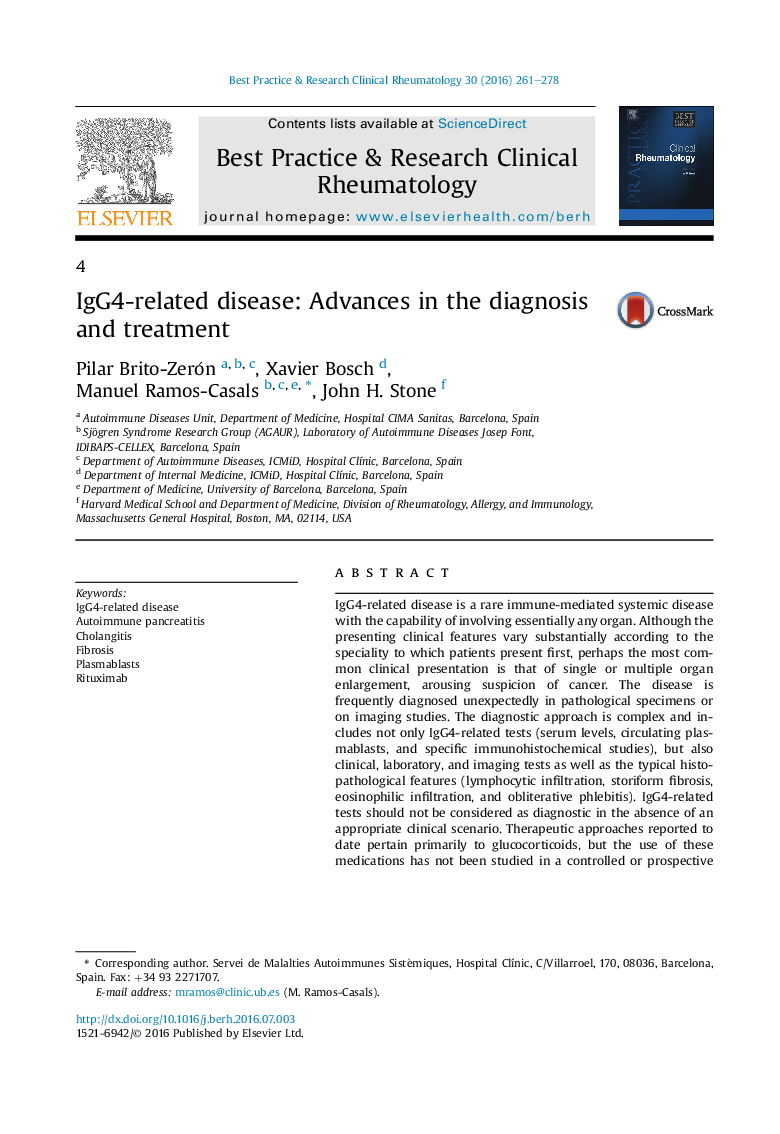| Article ID | Journal | Published Year | Pages | File Type |
|---|---|---|---|---|
| 5665502 | Best Practice & Research Clinical Rheumatology | 2016 | 18 Pages |
IgG4-related disease is a rare immune-mediated systemic disease with the capability of involving essentially any organ. Although the presenting clinical features vary substantially according to the speciality to which patients present first, perhaps the most common clinical presentation is that of single or multiple organ enlargement, arousing suspicion of cancer. The disease is frequently diagnosed unexpectedly in pathological specimens or on imaging studies. The diagnostic approach is complex and includes not only IgG4-related tests (serum levels, circulating plasmablasts, and specific immunohistochemical studies), but also clinical, laboratory, and imaging tests as well as the typical histopathological features (lymphocytic infiltration, storiform fibrosis, eosinophilic infiltration, and obliterative phlebitis). IgG4-related tests should not be considered as diagnostic in the absence of an appropriate clinical scenario. Therapeutic approaches reported to date pertain primarily to glucocorticoids, but the use of these medications has not been studied in a controlled or prospective manner. The most current investigational treatment approaches have focused on targeting cells of the B-cell lineage, including B-cell-depleting agents (rituximab) and a non-depleting homodimer monoclonal antibody targeting CD19 and Fc-gamma RIIIb.
